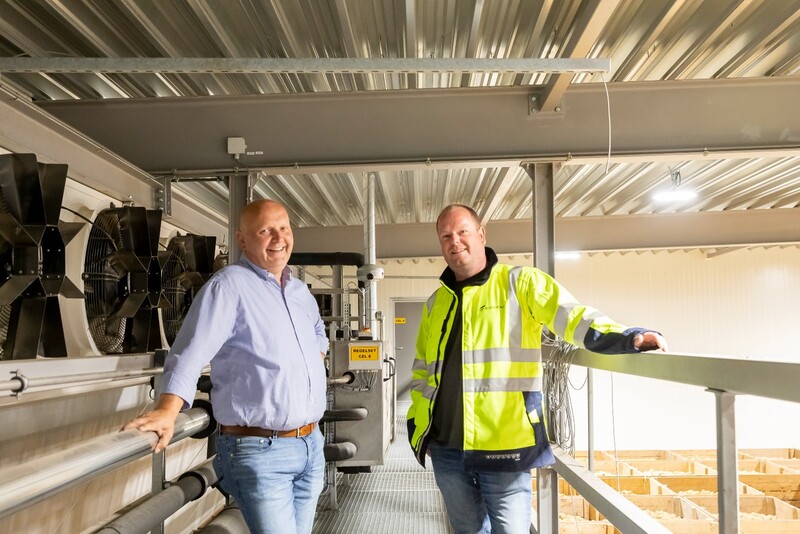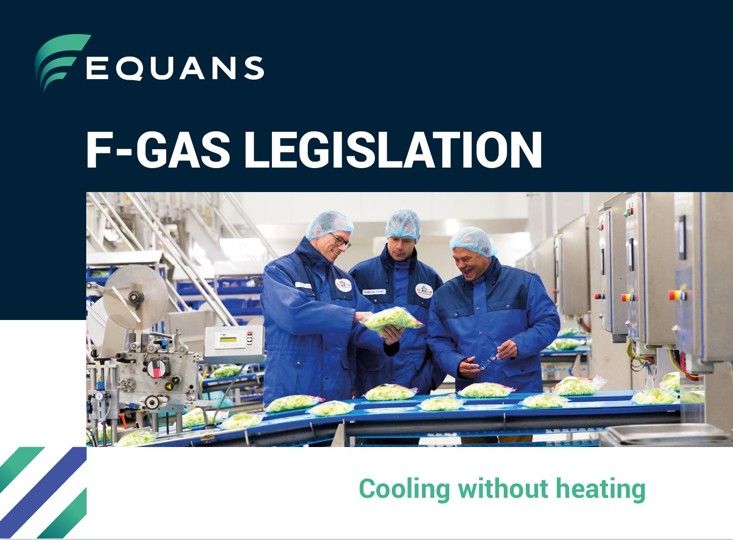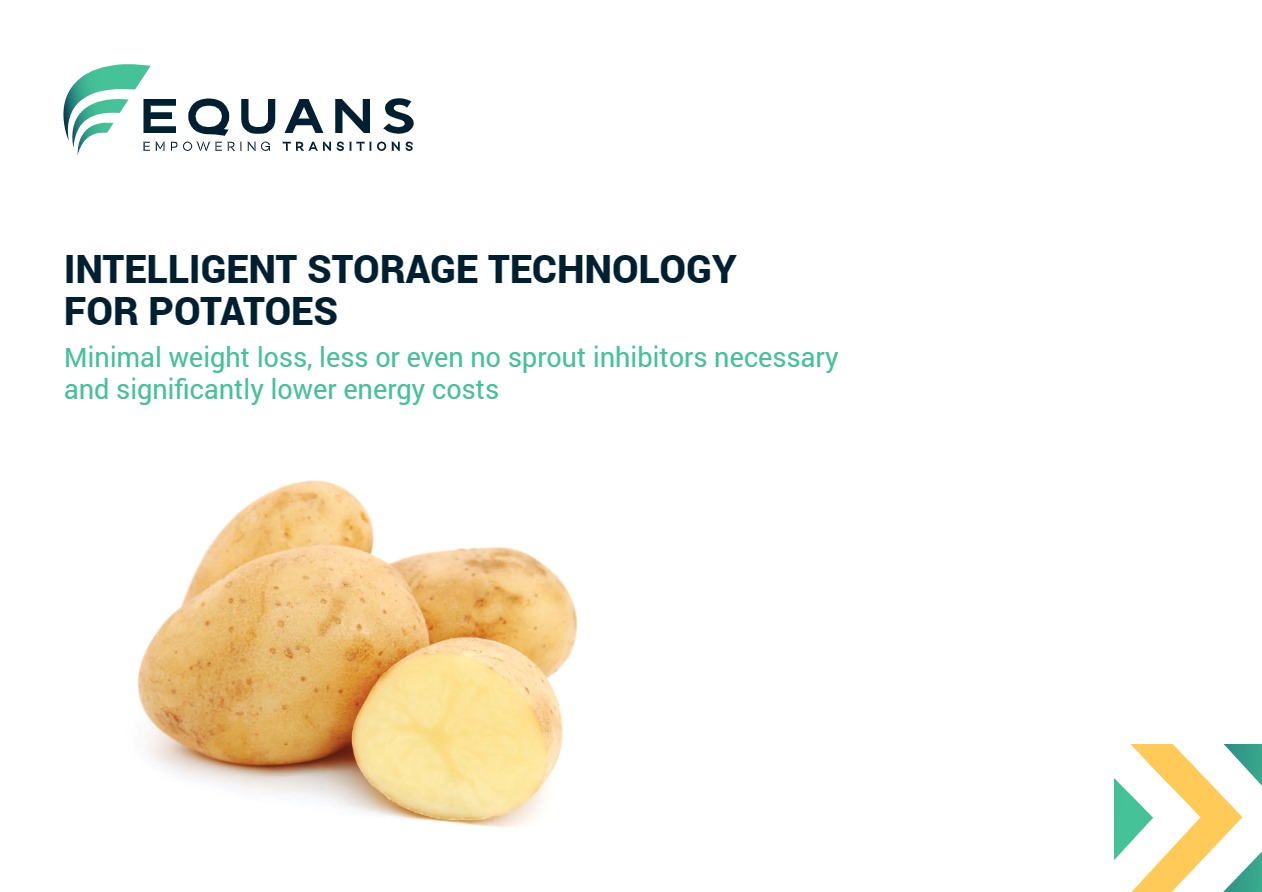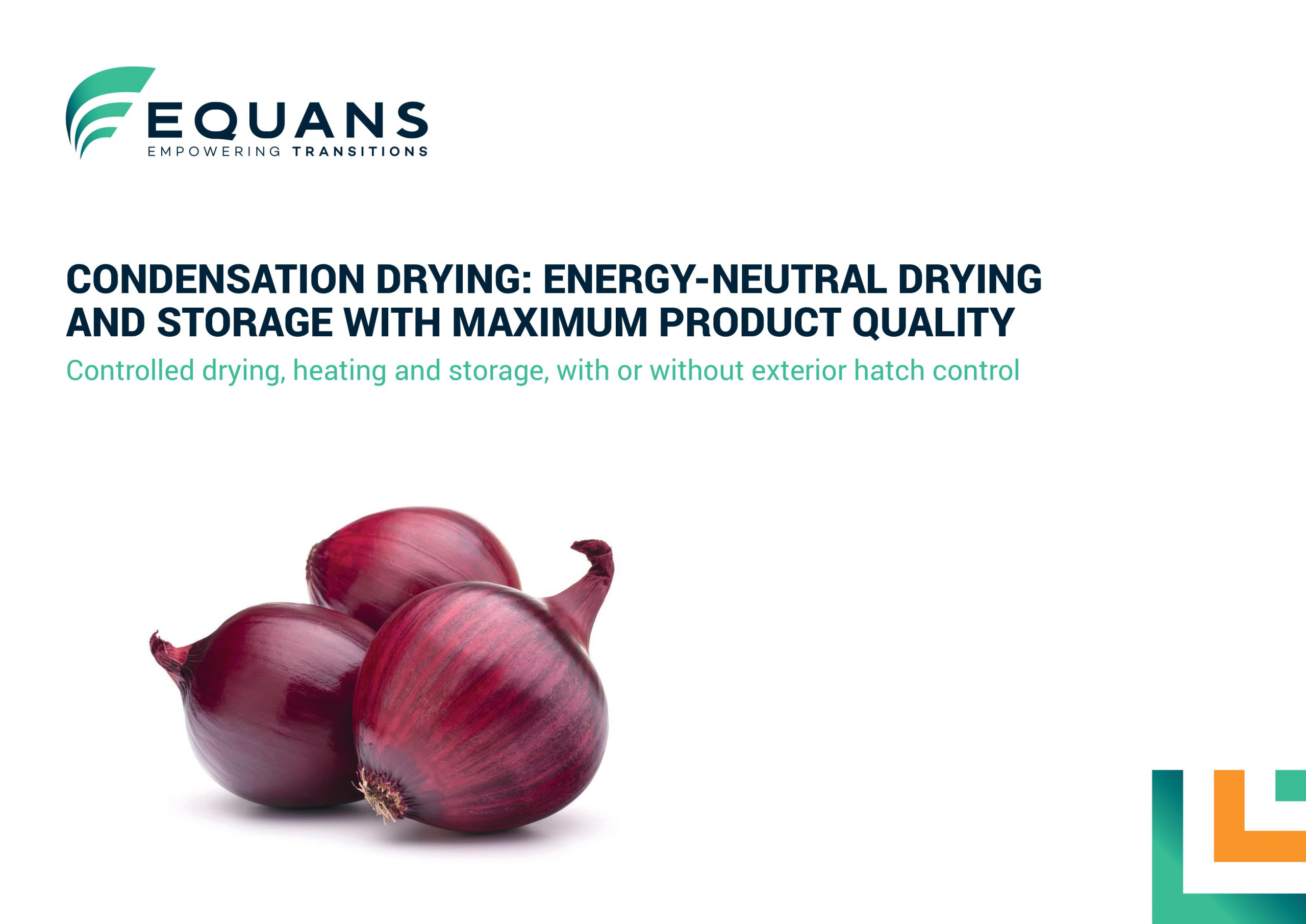Since March 2022, the largest condensation drying installation that Equans has made in Belgium has been running in Tielt in West Flanders. The energy-neutral system of De aardappelhoeve can dry and store 8,000 tons of potatoes, onions and shallots. With this showpiece, manager Bart Nemegheer fulfills a long-cherished wish: to be able to supply quality products from our own soil all year round.
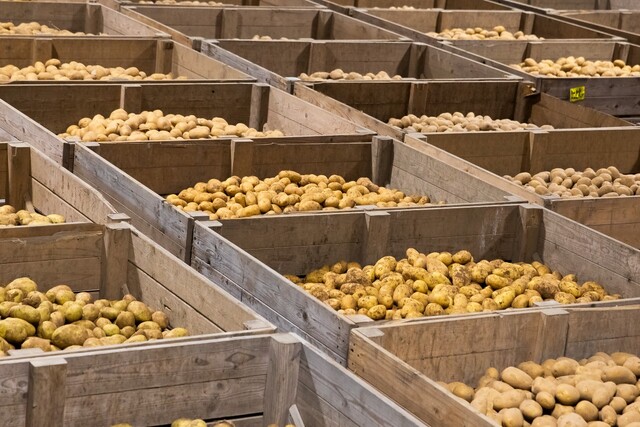
“As an agricultural sector, we need to look at our food production differently. It has to be much more sustainable. If we can eliminate the need for retailers to import products and reduce transport kilometres, we are building a future,” says Nemegheer. With that foresight, he had a new warehouse built. In it, Equans’ condensation drying installation keeps 8 cells, each containing 1,000 tons of products, at quality levels, allowing Nemegheer to supply all year round.
“The experience of Equans with the condensation drying system in the fruit and agro sector was decisive. The management system is fully worked out and I can adjust every parameter. That is what you want to see as an entrepreneur. That was also the difference with other providers, because they do have comparable storage systems, but cannot always provide the cooling capacity.”
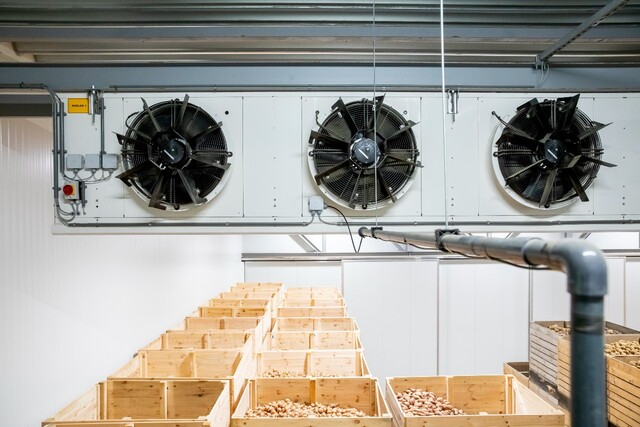
Nemegheer deliberately opted for a closed storage system. “In the old storage with outside air, we saw the quality of the potatoes deteriorate at the end of the season. They started to germinate and dry up due to changes in temperature and humidity. The risk of pressure spots and germs also increased. Wet or humid winter months are catastrophic for storage with outside air. Drying and ventilating with a humidity of 95% is simply not possible. Since climate changes only bring more uncertainty, we wanted a closed system. Then we are no longer dependent on the whims of Mother Nature.”
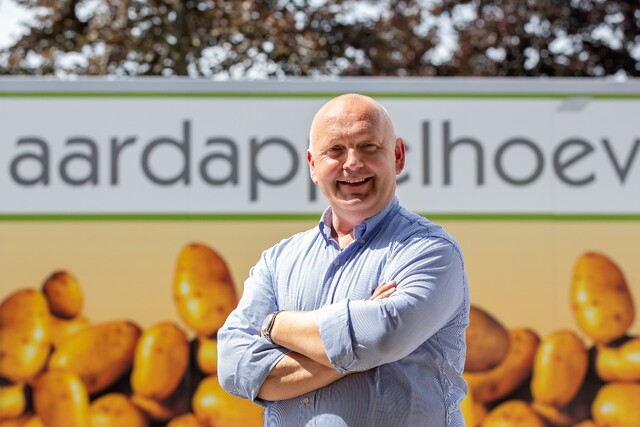
Whether it’s damp outside or not, the closed system allows the manager to dry whenever he wants. “Harvesting in the mud and in bad outdoor conditions? Previously we needed an expensive and polluting gas burner to heat and dry the potatoes. Not anymore. Thanks to a heat recovery system, we make 100% use of the heat released during the drying process. By heating the air in the storage unit with the released heat, we change the air to start absorbing moisture again and dry the potatoes,” he says.
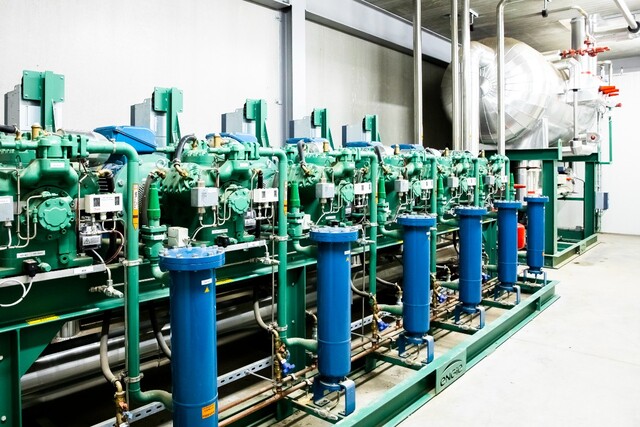
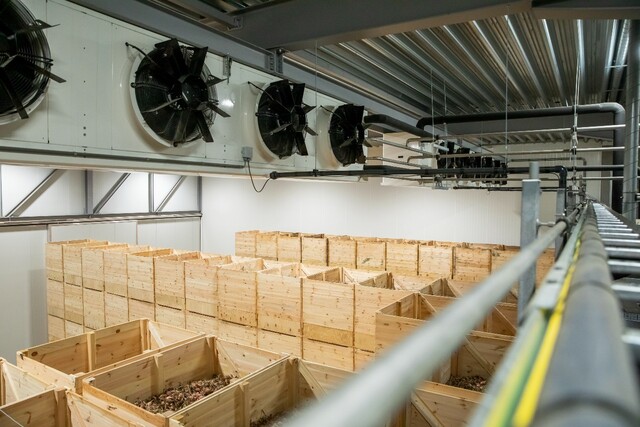
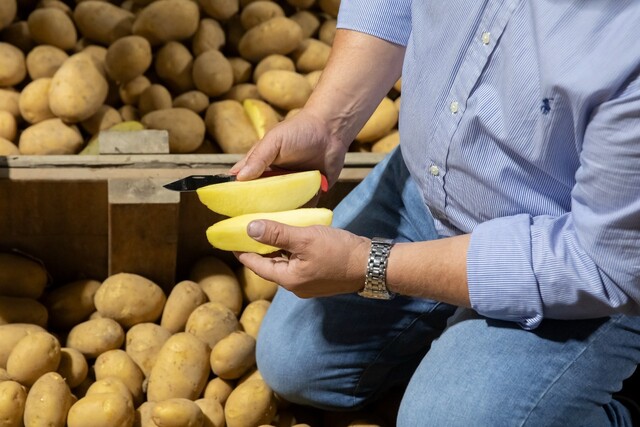
The drying process in storage boxes is optimal. “Because we can control the temperature, humidity, and CO2, there is no chance of germination. That also means that we need less or no sprout inhibitors at all.” The faster the product dries, the sooner the product can be cooled and brought to a constant temperature. Waxy potatoes at 3 to 4°C, chipping potatoes at 6 to 7°C.
It is precisely these stable conditions that keep the products fresh for longer, says Nemegheer. “The potatoes lose much less weight. Where the dehydration used to be 10 to 15%, it is now only a maximum of 3%. The potatoes remain nice and hard, which means that we also have far fewer pressure points and less waste during processing. Less dehydration also means greater food yield. Everyone benefits from that.”
Ammonia as a refrigerant also offers an advantage. The efficiency of ammonia results in significantly lower CO2 emissions compared to other refrigerants. The integrated heat pump can both cool and heat. The heat released from the cooling process is then used in the packaging area, where the product is brought from 3-4°C to 12°C.
The new storage system without gas heaters results in a CO2 reduction of 205,000 kg. As far as energy is concerned, De aardappelhoeve generates more than it consumes. Where the yield of the solar panels is 860,000 kWh, storage requires 513,000 kWh. As a result, Nemegheer benefits from a positive energy balance. “More solar panels will be added shortly, about 800,000 kWh. Once all products have cooled down and everything is going well, we may be able to sell our green energy to our neighbours. Producing and supplying sustainable food on our own soil all year round is really possible,” says a proud manager.
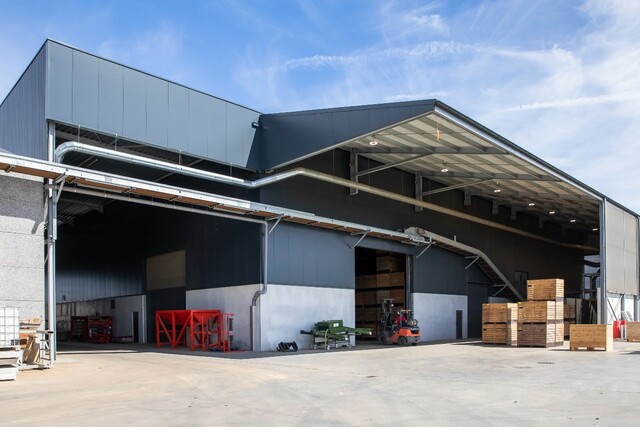
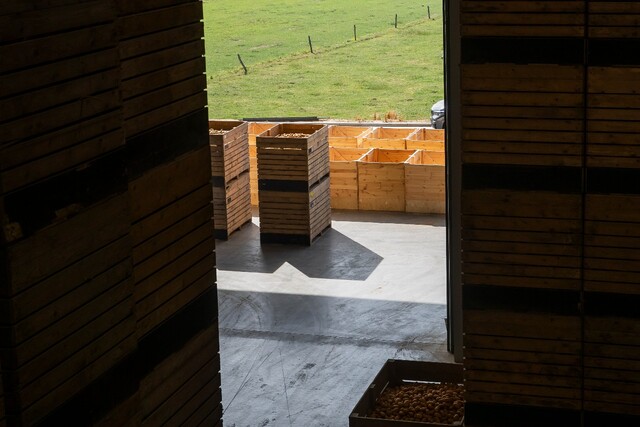
Equans Reference De Aardappelhoeve
"*" indicates required fields

